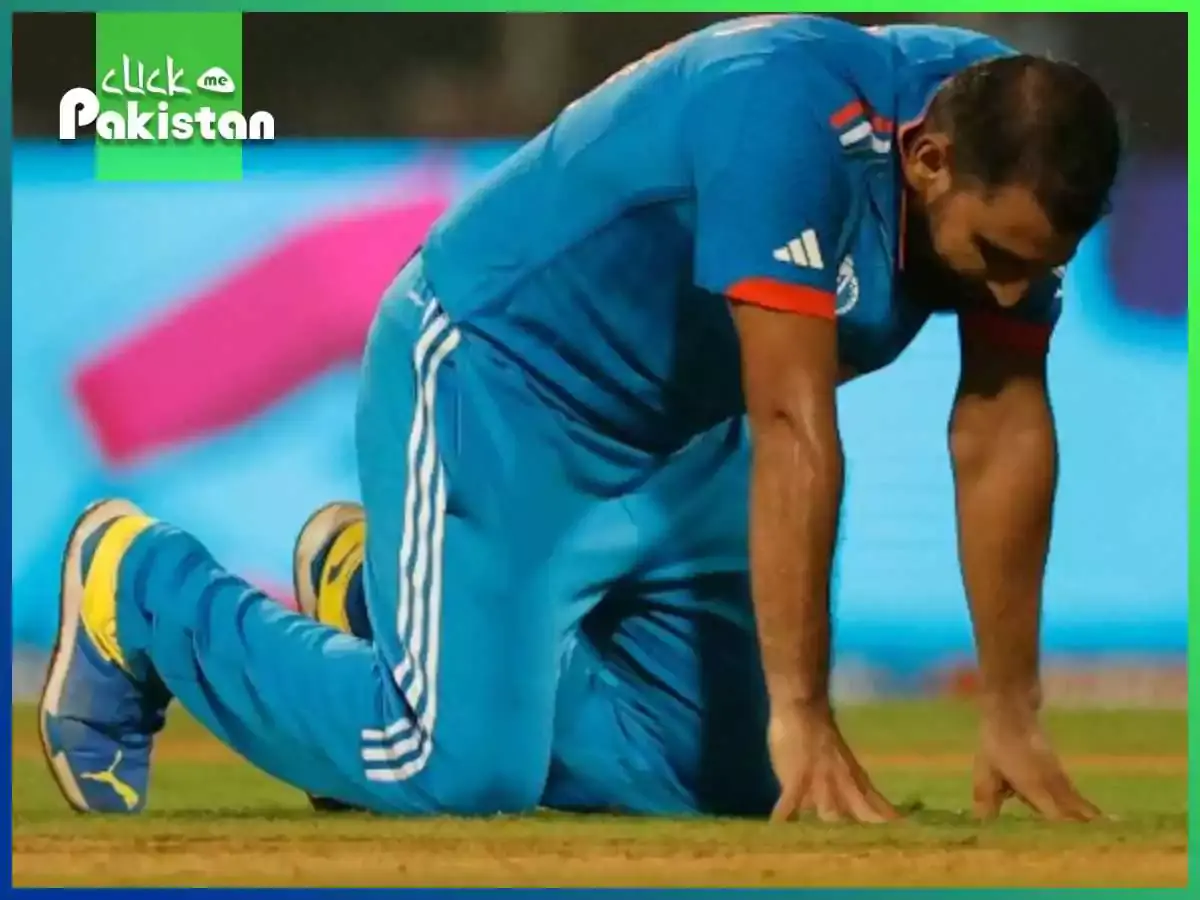Muhammed Shami Sajda Controversy
Introduction
Indian fast bowler Muhammad Shami became the talk of the town during the ICC World Cup when he declined to do the Sajda (prostration) following a five-wicket performance against Sri Lanka. Muhammed Shami choice to lead the Indian team in wicket-taking during the event provoked discussions and accusations about his religious convictions and practices. In spite of his exceptional on-field performance, Muhammed Shami came under fire and attention for refusing to bow. He fiercely denied these accusations, claiming his freedom to freely practise his faith. In an interview with Sports Tak, the local TV network, Muhammed Shami openly identified himself as an Indian Muslim and asked why he needed permission to pray.This incident clarifies the relationship between religion and sportsmanship and emphasises how important it is to respect people’s religious beliefs regardless of their line of work or level of public awareness. Shami’s statement highlights the need of defending religious freedom in all areas of life and emphasises the need for tolerance and understanding in varied cultures. Shami’s position is a painful reminder of the importance of religious freedom and acceptance as conversations about the relationship between religion and sports continue.
Indian fast bowler Muhammed Shami made a statement during the ICC World Cup when he stopped bowing in the match against Sri Lanka after taking five wickets.
The bowler who took the most wickets for the Indian team during the World Cup, Muhammad Shami, refuted the allegations of prostration and asserted that no one could stop him if he wanted to worship.

Muhammad Shami stated in an interview with the local TV station Sports Tak, “I will proudly say that I am an Indian Muslim and what is the problem?”
Muhammed Shami responded, “If I have to ask permission to worship, why would I stay in this country?” When asked about not prostrating, Muhammad Shami said that even if someone permitted me to worship, why would I stay in this country? Many times there are 5 wickets but what did Sajda do?
Conclusion
In conclusion, Muhammad Shami caused a stir when he chose not to execute the Sajda (prostration) at the ICC World Cup despite getting five wickets. Muhammed Shami was the Indian team’s top wicket-taker during the competition, but he was also the target of accusations and abuse because of his religious convictions.
Shami angrily denied these accusations, saying he is happy to be an Indian Muslim and that he shouldn’t be questioned about his religious beliefs. Shami voiced his displeasure in an interview with Sports Tak, highlighting his freedom to practise his faith and wondering why he needed permission to worship.
The delicate aspect of religious identification in the setting of athletics and public scrutiny is brought to light by this episode. Shami’s statement emphasises how crucial it is to protect people’s rights and religious convictions, regardless of their occupation or level of public awareness. Shami’s position serves as a reminder of the necessity for tolerance and understanding in many societies as discussions about the relationship between religion and sportsmanship continue.Muhammad Shami’s choice to forego the Sajda (prostration) at the ICC World Cup has generated a great deal of criticism and thoughtful discussion. Even though he was the team’s top wicket-taker and performed brilliantly, Shami was criticised and accused of having certain religious habits and views. He vehemently asserted his identification as an Indian Muslim, questioned the necessity of permission to worship, and defended his freedom to practise his religion, nevertheless. This incident emphasises the need to respect people’s religious convictions in all facets of life and draws attention to the junction of religion and sportsmanship. Shami’s position is a potent reminder of the importance of understanding and tolerance, especially in light of the public debate and scrutiny surrounding the compatibility of religion and athletics. As









